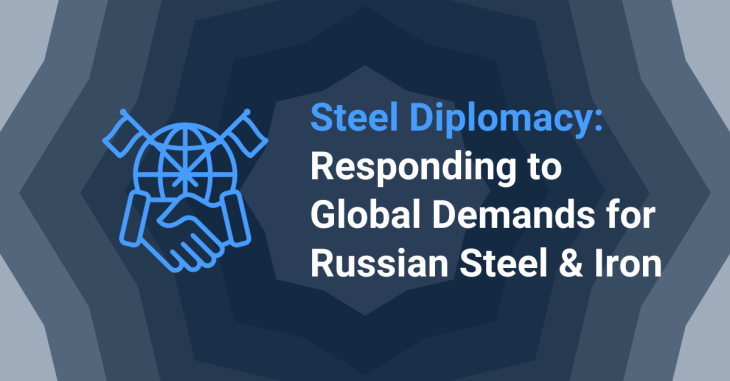What Is The Impact Of Russian Steel Diplomacy?

In response to the escalating tensions between Russia and Ukraine, global entities have enacted stringent sanctions. These sanctions target various sectors, including steel and steel-based products. Coordinated among international bodies, these measures pose significant challenges for businesses operating in international markets. As regulations tighten and enforcement mechanisms strengthen, navigating compliance becomes a priority.
Understanding the Scope of Sanctions
Recent sanctions targeting steel and related products demand heightened vigilance from companies involved in importation and manufacturing worldwide. Coordinated efforts among international bodies aim to restrict the flow of steel originating from Russia or processed using Russian materials. The scope encompasses raw steel and its derivatives, necessitating due diligence throughout the supply chain to avoid legal repercussions and disruptions.
Challenges and Consequences for Businesses
Despite initial assumptions that they would remain unaffected, many businesses now face halting shipments. They also encounter increasing pressure from customers to source verifiable data. Non-compliance poses significant risks, including hefty fines and market exclusion. As regulations evolve rapidly, businesses must adapt and enhance their compliance measures to mitigate these risks effectively.

Enhanced Oversight and Enforcement
In a resolution adopted by various regulatory bodies, concerns were raised regarding existing loopholes in sanctions regimes against Russia. Emphasis has been placed on stronger enforcement mechanisms to prevent attempts to undermine the effectiveness of sanctions. Moreover, reporting obligations have been broadened, compelling firms to inform regulatory authorities about designated persons and frozen assets.
Tougher regulations and stricter enforcement reflect a growing determination to curb sanctions evasion and hold violators accountable. Regulatory bodies across jurisdictions have bolstered their respective capacities and imposed stricter penalties for non-compliance. From doubling staff to naming and shaming organizations breaching sanctions, regulatory authorities are ramping up efforts. They aim to ensure compliance across sectors worldwide.
Navigating the Path Forward: Managing Supply Chain Risk
In the face of evolving sanctions and heightened oversight, businesses must prioritize compliance and adopt proactive measures to mitigate risks. Effective compliance policies help prevent violations and mitigate the risk and size of penalties and related reputational damage. To manage supply chain risk effectively, businesses can:
- Conduct Rigorous Due Diligence: Thoroughly vet suppliers and business partners to ensure compliance with sanctions regulations. Verify the origin of materials and implement robust documentation processes to demonstrate compliance.
- Implement Technology Solutions: Utilize advanced technologies such as blockchain and AI-powered analytics to enhance transparency and traceability within the supply chain. These tools can help identify potential risks and ensure compliance at every stage of the procurement process.
- Enhance Communication and Collaboration: Foster open communication and collaboration between internal departments and external stakeholders to share information and best practices. Establishing clear lines of communication can facilitate timely responses to regulatory changes and mitigate potential compliance risks.
- Invest in Training and Education: Provide regular training and education programs to employees involved in procurement and supply chain management. Ensure they are well-versed in sanctions regulations and equipped to identify and address compliance issues effectively.

Companies can effectively manage the challenges presented by steel sanctions and uphold ethical standards by adopting proactive compliance strategies. Additionally, they can optimize their efforts by utilizing technological solutions.
How Rhythm Innovations Can Help
Rhythm Innovations stands ready to support companies in managing their supply chain risks. Through our advanced compliance solutions and expertise in regulatory compliance, we empower businesses to manage evolving sanctions regimes effectively. From conducting due diligence to implementing technology-driven solutions, Rhythm Innovations provides support to ensure compliance in a dynamic global landscape. With our assistance, businesses can navigate the challenges posed by steel sanctions and maintain ethical standards while achieving their operational objectives.


